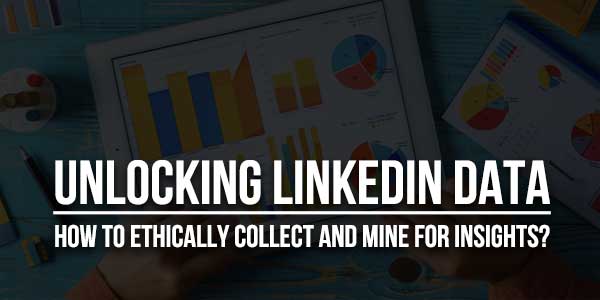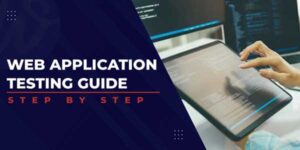
In the digital age, business success hinges on the ability to make data-driven decisions. LinkedIn, with its vast professional network, holds a goldmine of valuable insights that can propel your business forward. By mining LinkedIn data, companies can uncover actionable trends, identify high-potential leads, enhance recruitment, and refine strategies.
This article dives into how LinkedIn data mining can unlock growth opportunities, the best methods for collecting this data, and how to do so ethically while staying compliant with LinkedIn’s policies. Whether you’re looking to boost lead generation or gain deeper market insights, LinkedIn data mining is a viable solution.
Table of Contents
Leveraging LinkedIn Data for Business Growth and Strategic Insights:
LinkedIn data mining involves collecting valuable information from company profiles, job listings, company pages, and other platform data to drive key business decisions. The real power lies in how this data is analyzed to meet clear business objectives. By strategically leveraging LinkedIn data, businesses can uncover valuable insights to drive growth, enhance recruitment, and improve overall strategy.
Here’s how LinkedIn data can be applied to specific business goals.
- Lead Generation: Collecting and analyzing LinkedIn data such as professional backgrounds, skills, and company roles helps identify high-potential leads within your target industry.
- Market Research: By analyzing industry trends and competitor data, businesses can spot new opportunities and adapt their strategies accordingly.
- Talent Acquisition: LinkedIn data mining enhances recruitment by allowing businesses to identify top talent that fits their company culture and skill requirements.
- Customer Insights: Understanding engagement patterns and connections helps businesses refine their offerings and better meet customer needs.
Using LinkedIn data strategically enables businesses to make informed decisions that drive success, whether for lead generation, market analysis, recruitment, customer insights, or a specific use case.
How to Collect LinkedIn Data?
LinkedIn data can be collected in the following ways:
1.) LinkedIn Data Collection Using Official API:
LinkedIn provides an official API that enables developers to collect certain kinds of data for approved applications. However, due to LinkedIn’s strict data privacy policies, the API is somewhat limited in what it can access.
The LinkedIn API is a technique for accessing data in a controlled and compliant way, making it one of the most secure options for data mining. With an official API, you can:
- Pull data directly from LinkedIn’s servers.
- Access basic profile data, connections, and professional networks.
- Gather data on job listings and companies.
However, it’s essential to remember that LinkedIn data collection using API is designed for specific, limited-use cases, and you’ll need to get LinkedIn’s permission through their application process. The approval process is rigorous, so consider contacting professionals or data mining services if you’re unfamiliar with LinkedIn’s API policies and usage guidelines.
2.) LinkedIn Data Scraping Using Customized Scripts:
LinkedIn data scraping using customized scripts involves writing tailored code to collect specific data from LinkedIn profiles, job listings, company pages, or posts. This method provides flexibility and allows businesses to target particular data points like job titles, skills, and professional backgrounds.
With customized scripts, you can:
- Extract detailed data from LinkedIn profiles.
- Automate the collection of information from multiple profiles or company pages.
- Focus on specific data fields based on business needs, such as lead generation or recruitment.
This approach is more beneficial because it allows for greater flexibility and customization, enabling businesses to target and collect specific data points that may not be accessible through LinkedIn’s API. Additionally, it facilitates large-scale data collection, making it ideal for tasks like market research, lead generation, and competitive analysis. However, when using scripts, it’s crucial to understand the ethical and legal considerations, and it’s often advisable to use reputable data collection services that prioritize compliance with LinkedIn’s policies.

Approaches to LinkedIn Data Mining: Services and DIY Tools:
1.) Leveraging Professional Data Mining Services:
Data mining services specialize in sourcing and analyzing data for various business needs, including LinkedIn. When collecting LinkedIn data, partnering with professional data mining providers can be highly beneficial. These providers understand the legal boundaries and best practices for data collection, offering expertise in advanced data mining techniques often powered by AI and machine learning.
By working with data mining companies, you can:
- Ensure compliant data collection.
- Access data mining expertise without investing in software.
- Focus on data insights instead of the complexities of data collection.
These services provide valuable support for businesses that want to leverage LinkedIn data without navigating the technical or legal complexities.
2.) Data Mining Tools:
If you want a hands-on approach, several data mining tools make LinkedIn data collection easier. Some popular options include:
- Octoparse: A visual tool for web scraping that offers LinkedIn-specific templates for easy data extraction.
- Phantombuster: Automates LinkedIn actions, such as connecting with users or gathering profile data.
- RapidMiner: A data science platform that supports advanced data mining and analytics tasks.
These tools provide flexibility for users to collect relevant data from LinkedIn. However, they come with certain limitations, such as reduced data accuracy if LinkedIn’s layout changes. Additionally, these data mining tools may encounter challenges like rate limits and CAPTCHAs, which can interrupt data collection.
Guidelines for Ethical LinkedIn Data Extraction:
When collecting LinkedIn data, it’s essential to adhere to ethical practices to ensure compliance with the platform’s policies and respect user privacy. Following these guidelines can help you avoid being blocked by the Platform:
- Respect Privacy Settings: Only collect public data and avoid private user information. LinkedIn has strict privacy rules, so maintaining this boundary is essential.
- Don’t Overwhelm the Platform: Avoid collecting excessive data in short timeframes. This could cause LinkedIn to restrict your account.
- Stay Informed on LinkedIn Policies: LinkedIn regularly updates its terms of service, so check periodically to ensure your methods remain compliant.
- Use Verified Sources and Tools: Opt for verified tools and reputable data collection services to maintain data integrity and compliance.
By adhering to these guidelines, you can conduct LinkedIn data mining in an ethical and responsible manner, gaining valuable business insights while safeguarding against potential risks.
Conclusion:
To leverage LinkedIn’s data for business growth effectively, companies need to focus on well-defined goals and choose data collection methods. Whether using LinkedIn’s official API, creating customized scripts for targeted data extraction, or collaborating with a professional data mining company, each approach offers unique benefits. By selecting the right tools and methods, businesses can efficiently mine LinkedIn data, gaining valuable insights to drive growth, enhance recruitment, and refine strategies. With a strategic approach, LinkedIn data mining can be a powerful asset for making data-driven decisions that foster sustainable success.

 About the Author:
About the Author:
















Be the first to write a comment.